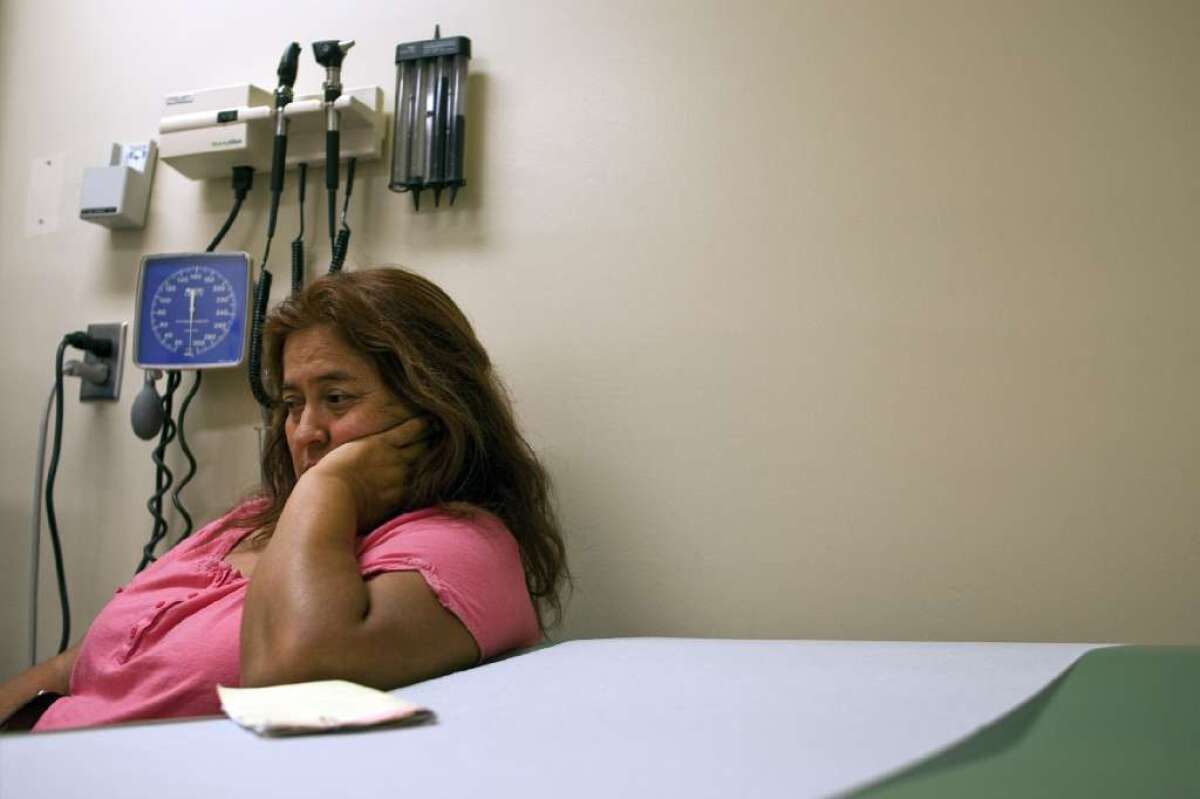7.6% of Americans are depressed, but few seek mental health treatment

- Share via
About 1 in 13 Americans was suffering from depression at some point between 2009 and 2012, yet only 35% of people with severe depression and 20% of those with moderate depression said they had sought help from a mental health professional, according to a new report from the U.S. Centers for Disease Control and Prevention.
That’s troubling, the report authors write, because therapy combined with medication is “the most effective treatment for depression, especially for severe depression.” Drugs might be prescribed by a primary care doctor, but only a mental health specialist would conduct the type of therapy needed to get well.
The report, from the CDC’s National Center for Health Statistics, offers a snapshot of the nation’s mental state during recent years.
The findings are based on interviews with a nationally representative group of American adults and teenagers who participated in the federal government’s ongoing National Health and Nutrition Examination Survey. These volunteers answered a range of questions that assessed a variety of physical, cognitive and mood symptoms that are related to depression. Responses from people 12 years old and older were used to compile the report.
Overall, 2.9% of the participants had suffered “severe depressive symptoms” in the two weeks before they were interviewed, and another 4.7% had “moderate depressive symptoms,” the researchers found. Americans in their 40s and 50s were the most likely to be depressed, with 9.8% having moderate or severe depression. They were followed by Americans between the ages of 18 and 39, with a 7.4% depression rate. The oldest (ages 60 and over) and the youngest (ages 12 to 17) people in the survey were the least likely to be depressed, with rates of 5.4% and 5.7% respectively.
African Americans (9.7%) and Latinos (9.4%) had higher rates of moderate and severe depression than whites (6.9%), according to the report. (No data were reported for Asian Americans.) However, after the researchers adjusted their findings to take poverty status into account, there were no significant differences based on race or ethnicity.
Gender, on the other hand, had a large effect, with women experiencing higher levels of depression than men in all age groups. The biggest gap was among people in their 40s and 50s -- 12.3% of women in this age group were moderately or severely depressed, compared with 7.2% of men. That 5.1-point difference was 30% bigger than the 3.9-point difference for the entire study population. Overall, 9.5% of women were depressed, along with 5.6% of men.
Depression took a meaningful toll on people’s lives, the researchers discovered. About 43% of those with severe depression said they had “serious difficulty” managing their work, home and social activities, and another 45% had “some difficulty.” For people with moderate depression, the corresponding figures were 16% and 58%. Even for people with mild depressive symptoms, 4% had serious difficulty with their daily activities and 42% had some difficulty.
Despite these problems, only 35% of people suffering severe depression and 20% of those with moderate depression told interviewers they had seen a mental health specialist, such as a psychologist, psychiatrist, psychiatric nurse or clinical social worker. (The researchers couldn’t verify whether these people actually began treatment for their depression.) Latinos were the least likely group to seek professional help from a mental health specialist -- only 28% of those with severe depression and 17% of those with moderate depression did so, according to the report.
If science and medicine give you a lift, follow me on Twitter @LATkarenkaplan and “like” Los Angeles Times Science & Health on Facebook.






